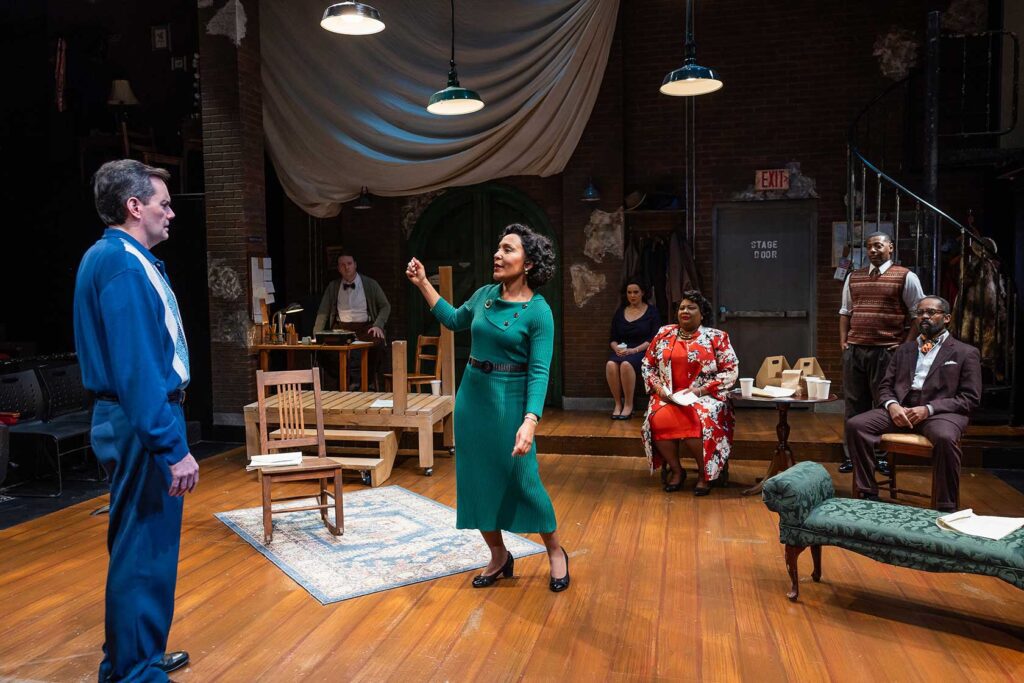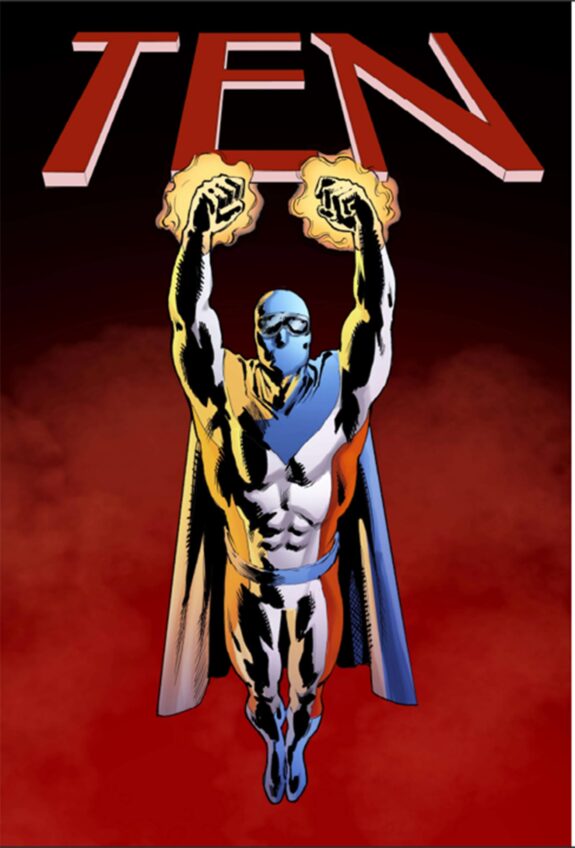
After its successful Off-Broadway run in 1955, “Trouble in Mind,” a play by Black actress, playwright and producer Alice Childress (1916-1994) was slated for Broadway. But Childress resisted demands to soften its edge. In 2021, her play reached Broadway with an acclaimed Roundabout Theater Company production that was nominated for four Tony Awards.
Its edge intact, “Trouble in Mind” is now at Lyric Stage Boston through Feb.4, with a riveting production directed by Dawn M. Simmons. Running two hours and 20 minutes, including a 15-minute intermission, the staging capitalizes on the play’s wry humor, poetic power and rich array of characters, each rendered memorably by a fine nine-member cast.
Evocative period sets by Shelley Barish, including a grand proscenium arch and backlit medallions alongside the theater walls, lighting by Deb Sullivan and sound by Aubrey Dube envelop the audience in the play, which unfolds as a rehearsal for an “anti-lynching” melodrama written by a white playwright.
Raised in Harlem by her grandmother, the daughter of a slave, Childress was well into her four-decade career when she wrote this play, which portrays a white-run theater world she knew well.
Its central character, Wiletta Mayer, is a seasoned Black actress who will make her Broadway debut in the melodrama. From her first moment on stage, arriving in a red hat and sheath for the opening rehearsal, Patrice Jean-Baptiste is a luminous, elegant Wiletta whose grit and passion bring fire into every scene.
Welcoming Wiletta is Robert Walsh’s Henry, the gentle Irish doorkeeper, in whom she comes to find a kindred spirit.
She is soon joined by other Black theater veterans Millie Davis, played by an ebullient MaConnia Chesser, radiant in a carnation-red dress and mink stole, and dapper Sheldon Forrester, played with warmth by Davron S. Monroe. They trade quips about their stereotyped roles as servants in white households and long-suffering mammas. In a recent role, Millie says, “All I did was shout ‘Lord, have mercy!’ for almost two hours every night.” Sheldon observes that in the new play, he will again be “whittlin’ a stick.” They enjoy wising up Kadahj Bennett’s earnest John Nevins, a young Black actor, and caution him against bonding with Allison Beauregard’s Judy Sears, a white Yale drama school graduate whose idealism matches his.
Barlow Adamson’s Al Manners is almost likeable in his ardor as the melodrama’s misguided director. Al’s bullying extends to the white stage manager, James Turner’s Eddie Fenton, astute and capable despite the abuse. As they rehearse, Manners alternates between fawning over and goading Wiletta, insisting that she locate the “truth” in her role. With rising agitation, Wiletta releases spontaneous gospel-inflected arias, each gaining in power. Recoiling, Manners calls for a break.
Alone with Henry, Wiletta finds a fellow fighter. He recalls with pride Ireland’s victorious struggle for home rule. Relaxing her cynicism, Wiletta confesses, “I want to be an actress… hell, I’m gonna be one, you hear me?”
In Act 2, Bill O’Wray, whose cool indifference is conveyed by Bill Mootos, rehearses his role as a white landowner. Wiletta’s character trusts him to save her son, played by John, who by daring to vote has incited a lynch mob. Wiletta challenges the script, believing that the mother would urge her son to escape. Sheldon poignantly describes a lynching he witnessed as a child. As off-script truths emerge, stereotypes unravel and the rehearsal falls apart.






